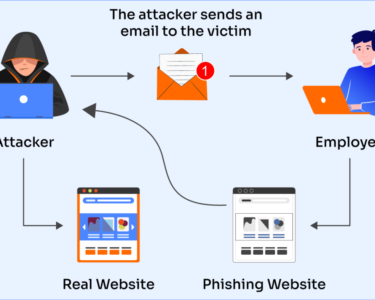
Human Firewall: A Critical Element in Digital Defense
In today’s digital landscape, where cyber threats are constantly evolving, it’s imperative to adopt a comprehensive approach to cybersecurity. While technical solutions such as firewalls and anti-malware software play a vital role, they are not sufficient to protect organizations from sophisticated attacks. The human element remains a critical factor in ensuring digital security, and this is where the concept of a "human firewall" comes into play.
What is a Human Firewall?
A human firewall refers to the collective knowledge, awareness, and behavior of individuals within an organization that contributes to its cybersecurity posture. It’s not a single person or department but rather a mindset and set of practices that permeates the entire workforce.
Importance of a Human Firewall
Human firewalls are essential for several reasons:
- Social Engineering Attacks: Phishing scams, spear-phishing, and other social engineering tactics rely on human vulnerabilities to trick individuals into compromising sensitive information. A well-informed workforce can identify and mitigate these threats.
- Insider Threats: Employees with malicious intent or compromised accounts can pose a significant risk to an organization. Human firewalls can help detect and prevent insider threats by promoting vigilance and reporting suspicious activity.
- Password Management: Weak passwords are a common entry point for attackers. Human firewalls encourage the use of strong and unique passwords and promote best practices for password management.
- Security Patching: Software updates often include critical security patches. A human firewall ensures that these patches are installed promptly and minimizes the risk of exploitable vulnerabilities.
- Incident Response: When a security incident occurs, a well-trained workforce can play a crucial role in containing the damage, notifying the appropriate authorities, and facilitating recovery efforts.
Building a Strong Human Firewall
Creating an effective human firewall requires a multi-faceted approach:
- Cybersecurity Awareness Training: Comprehensive training programs educate employees on the latest cyber threats, social engineering techniques, and security best practices.
- Security Policies and Procedures: Clear and well-defined policies and procedures provide guidance on appropriate behavior, password management, and incident response protocols.
- Regular Audits and Assessments: Periodic audits and assessments help identify gaps in the human firewall and areas where improvement is needed.
- Culture of Cybersecurity: Fostering a culture of cybersecurity involves emphasizing the importance of digital defense, promoting ethical behavior, and encouraging employees to report suspicious activity.
- Employee Empowerment: Empowering employees to make security-conscious decisions empowers individuals and makes them more effective in protecting the organization.
Conclusion
A human firewall is a fundamental pillar of digital defense, complementing technical solutions and providing organizations with a comprehensive approach to cybersecurity. By investing in awareness, training, and culture, organizations can create a workforce that is vigilant, informed, and proactive in protecting against cyber threats. Empowering employees to play an active role in digital security not only reduces the risk of breaches but also fosters a sense of accountability and ownership within the organization. In the ever-evolving world of cybersecurity, the human firewall remains a critical line of defense that cannot be overlooked.



